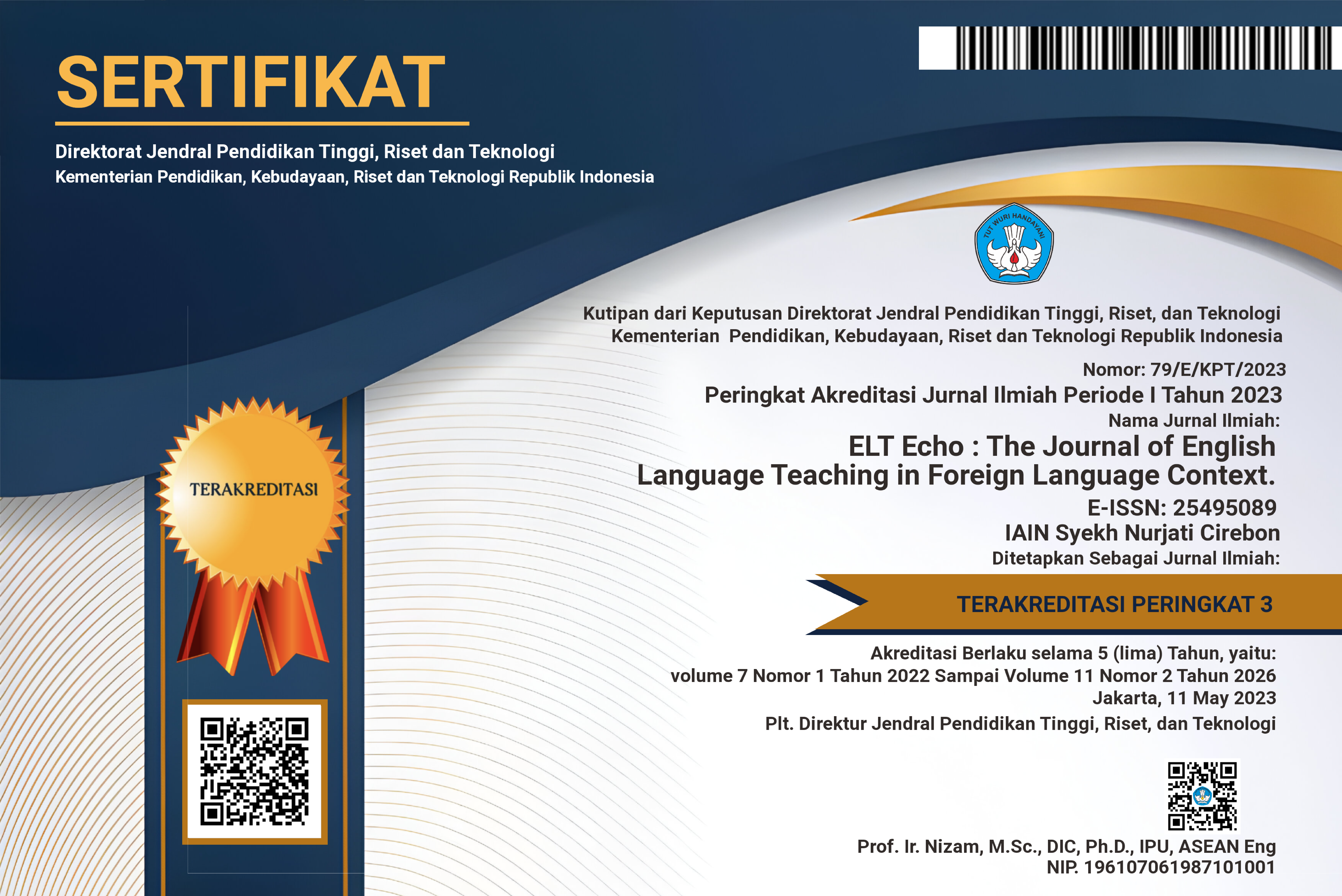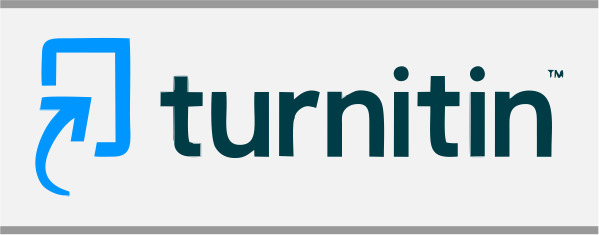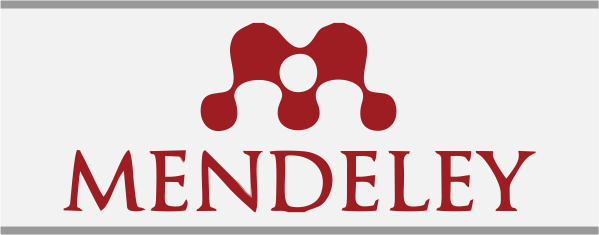MEANING NEGOTIATION PRACTICE IN A READING CLASSSROOM: A CLASSROOM DISCOURSE ANALYSIS PERSPECTIVE
(1)
(*) Corresponding Author
Abstract
Abstract: Classroom Discourse Analysis is very central study in main target of learning process. Its perspective can be focused on discussing negotiating meaning through spoken interaction in reading classroom between teachers and students as learning agents. Meaning negotiation is a form of give and take, whose purpose is to get a solution that have not already existed in participant’s opinion, but eventually it is acceptable for all. This thesis is descriptive qualitative analysis which primary sources of data are conducted through observation in trailblazer 6 class at Cirebon Local language school. Turn-taking presented in constructing knowledge in apperception structured by knowledge oriented exchange that got 78% and action oriented exchange got 22%. The process of exchange here indicates students’ need to recognize topic of their lesson; it means teacher should produce exchange in verbal type to construct students’’ knowledge. The dynamic moves that interpret in meaning making system in the data presentation from experiential meaning realize by material process of knowledge oriented exchange that got 82%. It means most of utterance realized by teacher is to describe content of their lesson to the students. Then, from interpersonal meaning most of their interactional process realized by 44% types of dynamic move rephrase that indicates asking of some information whether it came from the teacher or the students. The last action oriented exchange realized by 18%. It means most of utterances’ indicate subject as act of superstition experiences.
Â
Keywords: Classroom Discourse, Reading cycles, Meaning negotiation, turn allocation, turn taking, dynamic moves.
Â
Full Text:
PDFReferences
Atkin,A. (2011). Sinclair and Coulthard’s ‘IRF’ model in a one-to-one classroom: an analysis. New York: International Press.
Aukerman,S. (2007). When reading it wrong is getting it right: shared evaluation pedagogy among struggling fifth grade readers: Reading volume Association. Ledoco City: Muselit press. Vol.42
Behnam,B and Pouriran Y .2009. Classroom Discourse: Analyzing Teacher/Learner Interactions in Iranian EFL Task-Based Classrooms: Towards the development of a global communicative, 12: 117-132.
Berry,M. (1987). ‘Is teacher an unanalyzed concept?’. In Halliday, M.A.K and Faweett R.P (eds.) NEW Development in systemic Linguistics Theory and
Cresswell, John W. (2014). Research Design: Qualitative, Quantitative, and Mixed Methods Approach. London: Sage.
Elwood, Sarah. 2006. Negotiating Knowledge Production: The Everyday Inclusions, Exclusions, And Contradictions Of Participatory Gis Research: The Professional Geographer. 58 (2) : 198 – 206.
Hyland,Ken. 2003. Second Language Reading. City of Hogkong : Cambridge University Press.
Ibadurrahman, Ihsan. 2011. TheImportance of classroom discourse analysis for ELT teachers. E-Club Teacher at Alfa Centauri, Slideshare, (online), (http://www.slideshare.net/IhsanIbadurrahman/the-importance-of-classroom-discourse-analysis-for-english-language-teachers)
Kääntä, Leila. 2010. Repair Practices in Classroom Interaction Teacher Turn-Allocation and A Multisemiotic Perspective. University of Jyväskylä.
Lodico, Marguerite et al (2nd.ed). 2010. Methods in Educational Research. United States of America : Jossey-Bass
Pirzadeh, Joe. 2014. What is Negotiation?, Senior Management,Products,Operations & Mobile Commerce, Linked in, (Online), (https://www.linkedin.com/today/post/article/20140831042025-339434204-what-is-negotiation)
Richards, J.C., Platt, J., and Platt, H. (1992). Dictionary of language teaching and applied linguistics. London: Longman.
Smith, Frank.2004.Understanding Reading.United States of America: Lawrence Erlbaum Associates
Stahl, G. 2001. Knowledge Negotiation in Asynchronous Learning Networks. European Commission’s ITCOLE Project.
Suherdi,Didi. 2004. Discourse Analysis in Classroom Research : A systemiotic Perspective. Indonesia University of Education.
Walker, Richard. 2006. Five Elements of Good Writing: Centre for Education and Training (CET). Pp.1-27
Wennerstorm,Ann. 2003. Discourse Analysis in the Language Classroom Volume 2: Genres of Writing: The Electronic Journal for English as a Second Language (TESL-EJ). 8(2): pp.iii-iv + 193.
DOI: 10.24235/eltecho.v1i1.970
Article Metrics
Abstract view : 842 timesPDF - 534 times
Refbacks
- There are currently no refbacks.
Â
This Journal is indexed by:
Â

This work is licensed under a Creative Commons Attribution 4.0 International License.










